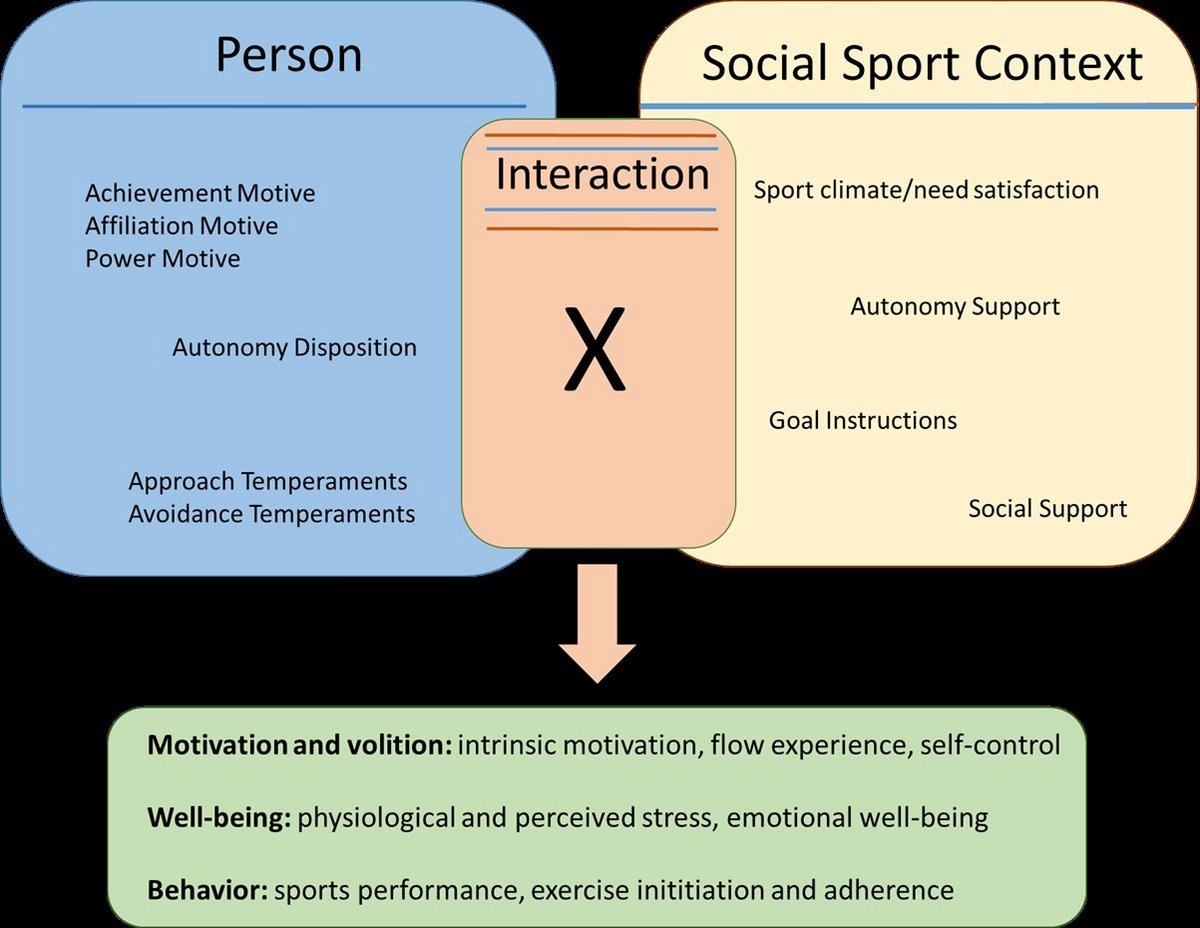
Our Research Perspective: The Person-Social Context - Fit
What differentiates well-trained athletes from 'couch potatoes', recreational sportsmen from elite athletes and stressed from relaxed sportspersons? Our research on these questions is guided by a simple proposition: If we wish to explain why individuals differ in their motivation, their sport performance, and in their well-being during sports, we need to consider stable personality differences and their interaction with characteristics of the sport contexts. This approach of “person x social context fit“ is a general perspective that we take to examine quite diverse research topics, which are theoretically-embedded in different disciplines of psychology. Among those topics are the processes of goal-setting and goal striving (e.g. social and motivation psychology), social support (health psychology) and basic need satisfaction (motivation psychology) and their relevance for a variety of health facets and performance.
Background and concepts
Whilst there is theoretical agreement in Psychology that motivation and behavior result from an interaction between a person and the situation he or she is in, the research practice often looks different with a focus on either the characteristics of a person or the features of a situation. Our research is based on the assumption that the predictive power of phenomena in sports can be largely enhanced by considering the characteristics of a person, in particular implicit motives and dispositions, and social processes simultaneously. The four social processes we are mainly interested in are the sport climate, which is, for example, created by the coach and the teammates, the autonomy-support provided by the coach, the goal instructions given by the coach and the social support people receive when, for example, struggling to initiate or maintain regular exercise or when suffering from sport injuries. The complex interplay between characteristics of persons and sport situations (illustrated in the figure) determines a variety of outcome variables and explains – in our opinion - the most interesting phenomena in Sport Psychology. The questions which undoubtedly occupy us the most and which currently determine our scientific work are:
Motivation and volition:
- How can we foster and undermine intrinsic motivation and under which circumstances does self-control replace motivation?
- Can we capture the “undermining effect” (self-determination theory, Deci & Ryan) using fNIRS?
Well-being:
- Does the incongruence between a person´s implicit motives (e.g., strong affiliation motive) and his or her social environment in sport (e.g., achievement-related instructions by coach) function as a psychological stressor that impairs emotional well-being?
- Does social support reduce an athletes physiological stress responses and enhance sport performance? Why and for whom?
Behavior
- What incentives within the sport environment are needed to win a physical inactive person over to exercise regularly?
- On the other hand: Why are some people over committed to sports or even at risk for exercise addiction?
Contact
This research perspective is taken by Julia Schüler and the members of her Sport Psychology Lab. If you are interested in finding out more about it, please feel free to contact Julia Schüler. You are cordially invited to obtain further information from our homepage with regard to our specific research questions. Click on the appropriate link and/or contact the relevant main investigator. Julia Schüler´s research is focussed on Motives and Needs. If you are interested in this topic please click on this link and feel free to contact Julia Schüler. The effects of Social Support in Sports are investigated by Julia Schüler and Zsuzsanna Zimanyi. Contact Zsuzsanna Zimanyi. if you want to know more about this topic. Motive-Goal Incongruence is known to impair well-being, motivation and performance. Julia Schüler aims at shedding light on this phenomenon and its correlates.
The above-mentioned research topics are suitable for Bachelor- or Master theses (experiments or correlational field studies). Interested students are encouraged to contact us.
